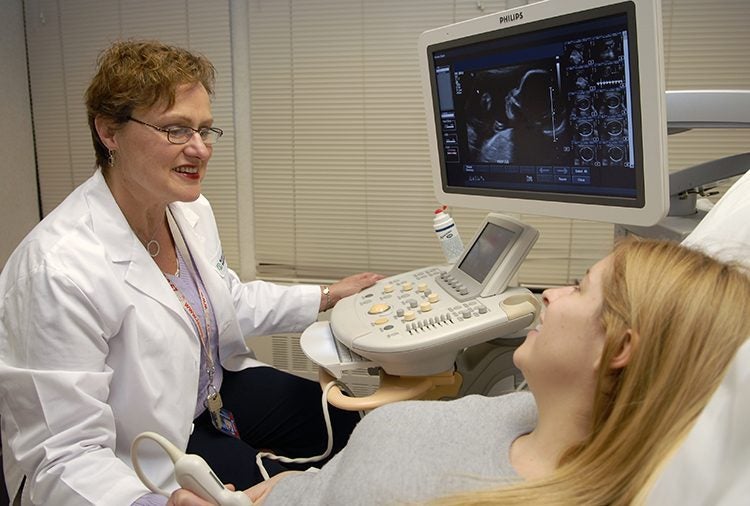Premature birth: Barbara McFarlin
THE PROBLEM: Heading link
Birth before 37 completed weeks of pregnancy is the main contributor to perinatal morbidity and mortality and a leading contributor to developmental disability. Globally, 1.1 million infants die each year during the first four weeks of life due to the consequences of being born premature.
THE RESEARCH: Heading link

In three NIH-funded studies, Professor Barbara McFarlin, PhD ’05, MS ’84, BSN ’74, CNM, RDMS, FACNM, FAAN, used ultrasonic methods to discover that women who are destined to deliver preterm experience detectable changes in the microstructure of the cervix early in pregnancy. This groundbreaking discovery could help indicate which women would benefit from progesterone therapy, which can delay cervical remodeling leading to preterm birth. In work, McFarlin leads an interdisciplinary research team of mechanical and electrical engineers, maternal-fetal medicine physicians, sonologists and statisticians. She is also studying the influence of chronic stress and racism on preterm birth in African Americans, who have the highest rate of premature birth in the United States.